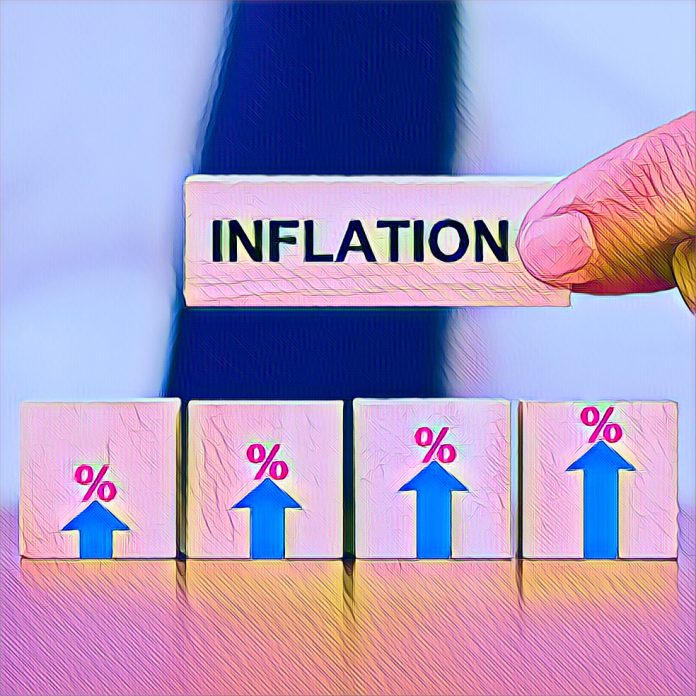Key Points
- Nigeria’s inflation is projected to hit 34.64% in December.
- Food prices for rice, eggs, and oil are rising sharply.
- Rate hikes aim to curb inflation but increase borrowing costs.
Ahead of Monday’s National Bureau of Statistics (NBS) inflation report, analysts at Financial Derivatives have predicted that Nigeria’s inflation rate will increase to 34.64%.
Nigeria’s inflation to hit 34.64% amid cost pressures
According to the estimate, which is based on a regression model and a Lagos market survey, prices will rise by 0.76% during the same period in 2023 due to growing expenses and seasonal variables.
According to the Economist Intelligence Unit (EIU), Nigeria’s inflation rate is expected to reach a peak of 35% in December 2024 before beginning to decline.
With base effects, trade policy changes, and foreign exchange stability supporting a long-term disinflationary trend, the EIU projects inflation to average 27.7% in 2025.
It is anticipated that headline inflation will rise in tandem with the food and core inflation sub-indices. Analysts predict that core inflation will increase to 29.38% and food inflation to reach 40.02%.
Significant price increases are anticipated for a number of essential commodities, including sardines, rice, eggs, and vegetable oil.
According to Business day, it is also anticipated that monthly inflation, which is thought to be a more up-to-date indicator of price increases than the annual rate, will rise from 2.64% to 2.67%, or 37.25% when annualized.
Interest rate hikes choke borrowing but are seen as necessary
Nigeria’s central bank has taken a hawkish approach to rein in inflation, according to FDC analysts. The Monetary Policy Committee (MPC) increased the monetary policy rate (MPR) by 25 basis points, to 27.5% annually, during its November meeting.
It is anticipated that higher interest rates will increase the cost of borrowing, decrease surplus liquidity, and moderate price levels. According to FDC experts, “interest rate hikes are choking, but they are necessary.”
The fact that core inflation is still stubborn points to structural issues.
Given the continuance of core inflation relative to headline and food inflation, Financial Derivatives issued a warning that Nigeria’s inflation may be more structural than temporary.
“It will suggest that Nigerian inflation is more structural than transient, as core inflation has remained more sticky in comparison to headline and food inflation,” the FDC said.
The company cautioned that if monetary tightening is not combined with complementing economic measures, inflationary pressures may continue.
Analysts anticipate more tightening measures at the next MPC meeting in January, since inflation is predicted to continue on its rising track before leveling off by mid-2025.



